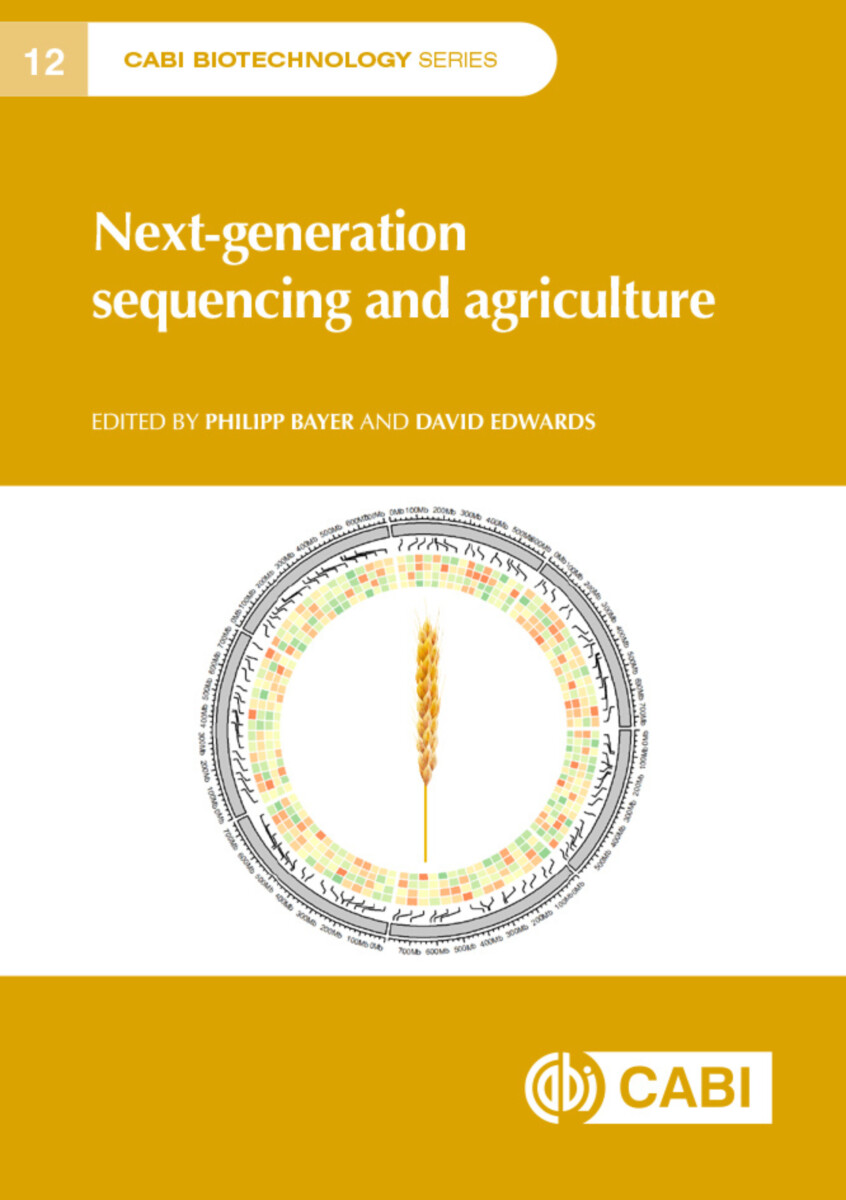Next-generation Sequencing and Agriculture
- Publisher
CABI - Published
16th August 2022 - ISBN 9781789247824
- Language English
- Pages 192 pp.
- Size 6" x 9"
Genome sequencing has become a basic tool of plant and animal breeding. Reduced costs have allowed the sequencing of thousands of plant lines or cultivars, leading to previously unobtainable insights into genetic impacts during breeding and generating large numbers of novel candidate breeding genes. This book summarizes the impacts that the genome sequencing revolution has had on agriculture with reference to applications across species and locations. It explains new techniques and their use in understanding epigenetics, breeding and conservation. It is a useful resource for scientists wanting to learn how different fields of agriculture have adapted novel genome sequencing technologies to their requirements, and for those wanting to transfer technologies and lessons learned from one field of agriculture to another.
This book is a useful resource for students and researchers in biotechnology, genetics, genomics and breeding.
1: The Use of Next-Generation Sequencing to Study Banana Traits, Pests and Diseases in Tropical Agriculture
2: The Impact of Genomics in Identifying Blackleg Disease Resistance Genes in Canola
3: Rice Genetic, Genomic and Breeding Revolutionized by Next-Generation Sequencing
4: The Use of Genome Sequencing to Improve Crops for Tropical Agriculture
5: Use of Genome Sequencing for Crop Improvement in Sub-Saharan Africa
6: Use of Genome Sequencing for Improved Pig Breeding
7: Recombination, Linkage and Haplotypes: Dissecting Patterns of Inheritance for Genetic Gain
8: Pangenomics in Agriculture
Philipp Bayer, PhD
Dr. Philipp Bayer finished his PhD at the University of Queensland where he worked on novel crop genotyping techniques applied in canola and wheat. He then moved to the University of Western Australia where he has been central in establishing pangenome pipelines in a variety of crops from Brassica to soybean and wheat. As a Forrest Fellow he now works on the genomics of native Australian species, canola and other Brassicaceae, soybean, and other crops.
David Edwards
David Edwards, University of Western Australia, Australia.


